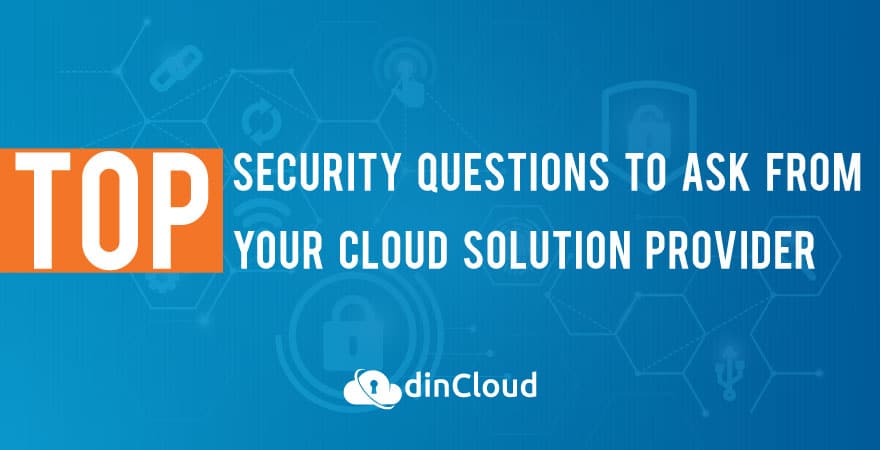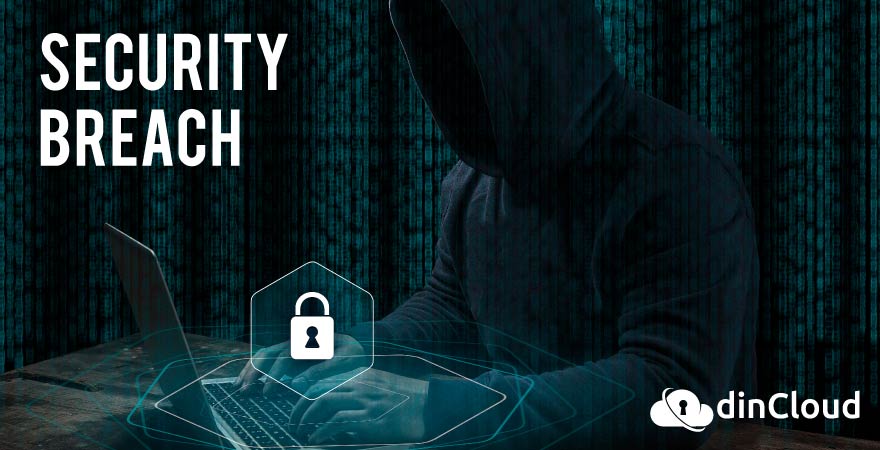Once an organization has decided to go for a Cloud Solution, the quest for selecting the most suitable Cloud Service Provider (CSP) begins. An entity could have many criteria for this selection but security should be among the top priorities.

Cloud Security is paramount for each stakeholder of this arrangement. The repute of any CSP is gauged from its track record in security. The sustainability and viability of the deploying organization may hang in the balance of security. The end customer of the product or service which is offered by that organization also can’t be ignored.
In the larger interest of all the above key stakeholders, it is imperative that cloud security occupies center stage when finalizing among the shortlisted CSPs. Lastly, security is such a sensitive aspect of any cloud solution that every aspect of this arrangement must be crystal clear and void of any gray areas.
Now that we have underscored the importance of security in any cloud solution, let’s get into the specifics. We have jotted down a few security centered questions that an organization must inquire and clarify from its CSP. We go so far as to say that no formal arrangement should be initiated before these concerns are allayed.
Mapping of Responsibility
It is rightly said that with responsibility comes accountability. If you don’t make someone responsible for something, how can you hold it accountable for any breach? The same goes for any cloud solution. It must be clearly defined as to which aspects of security will be the domain of CSP and there should be no overlap in this area.
Review of Existing Security Apparatus
This aspect is absolutely critical for an organization that is deploying a cloud solution as a first. There will be a fundamental change in how business critical data will be shared and stored across the cloud. In most cases, the incumbent security measures would prove inadequate and new layers of security will be required.
Also Read: Protecting Your Business from Cyber Attacks
Is your CSP adequately equipped with the measures and protocols that will secure the cloud solution? What additional layers of authentication will be required at the entity level to ensure that no unauthorized access is granted to the cloud infrastructure?
Authentication Protocols
As today’s cloud solutions allow multi-platform access, user authentication becomes all the more necessary. This is very crucial because if a user’s device falls into the wrong hands, the data on the cloud becomes accessible. Does your CSP employ an additional layer of security by authenticating each user?
Location and Security of Data
Being a CSP’s customer, it is any organization’s right to know exactly where the data centers of the CSP are located. In addition, the CSP must also disclose the security protocols in place for the security of this data. At times, an entity may be legally obligated to engage CSPs whose data centers comply with certain industry standards of security.
Physical Security of Data Centers

At times, deploying organizations may get so preoccupied with cyber security of a CSP’s data centers that physical security may be ignored. This is also an aspect that can potentially affect data security. Does your CSP ensure the physical aspects of security of its data centers?
The physical security of any Cloud Service Provider’s data centers includes a dedicated physical space with round the clock security. The facility should be fully equipped with surveillance cameras. Entry to the data centers should be restricted and proper logs should be maintained for any physical access to the data center premises.
Encryption Protocols
It is a time tested technique for ensuring data security while it is on the move or housed in data centers. However, encryption is a vast field in itself and any deploying organization must inquire about the encryption techniques and protocols used by the CSP.
It is quite possible that the deploying organization may be obligated to encrypt its data in line with a minimum standard. If there is any statutory requirement of the like, does the CSP’s data encryption standards meet those requirements.
Security Breach

This is an area where no one wants to venture in due to its complexity and sensitivity, but it has to be addressed. Despite a host of security features and assurances, a security breach cannot be completely ruled out. Before zeroing in on any CSP, the details of a full and timely disclosure of any breach must be finalized.
It is pertinent to mention that most data breaches, whether they occur over the cloud or otherwise, are kept under the carpet as it is a PR nightmare. Still, a data breach can have far reaching implications for thousands or millions of people and such an incident cannot be left unattended.
Also Read: Top 5 Cloud Computing Vulnerabilities, Threats and Remedies
Training of Employees
Overall security of any cloud solution cannot be achieved without the active participation of the employees of the deploying entity. They need to be sensitized and conveyed all the potential loopholes that can result in the unauthorized use of their devices that have access to the cloud network.
Non-compliance with Contractual Obligations
In addition to documenting the responsibilities of the CSP, a deploying organization must also consider a course of action if a CSP is falling short of its commitments about cloud security. The CSP can be subjected to contractually binding penalties for any non-compliance or unilateral withdrawal of any agreed service.
Data Destruction Plan
An organization going for the cloud must put into place an elaborate data destruction plan. Regardless of whether an entity switches its CSP or reverts to an in-house arrangement, its valuable data is with the CSP. The CSP should be contractually bound to destroy the entire data of the entity upon termination of the service.
Regulatory Security Standards
To bring standardization to the rapidly growing cloud solutions, many classes of data need to be stored in data centers that meet certain regulatory standards. This should be a major consideration when selecting a CSP as any non-compliance can result in serious legal ramifications.
Liability of Data Breach
If it is established that a data breach was due to a lapse on the part of CSP, can it be held contractually and legally liable for this breach. Such an arrangement will greatly mitigate the after effects of any established data breach that occurs over the cloud network in question.
Also Read: Equifax Massive Data Breach | Equifax To Pay Upto $700 Million For Breach Settlement
Conclusion
There are no two opinions that keeping any Cloud Solution fully secure is the collective responsibility of any Cloud Service Provider and deploying entity. However, more onus lies on the CSP as it is the ultimate guardian of the valuable data that resides in its data centers.
Before any Cloud Solution is fully deployed and starts bearing fruit, there is a lot of planning and careful thought that should go into the whole process. If a Cloud Solution is commissioned without due diligence and planning, it may result in more troubles than benefits. Security of the cloud should always be a top priority.


